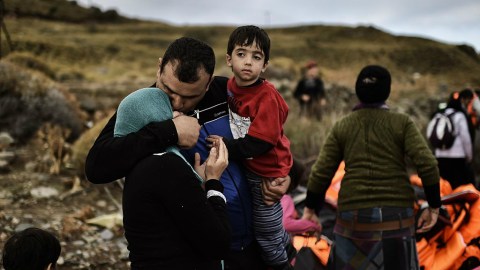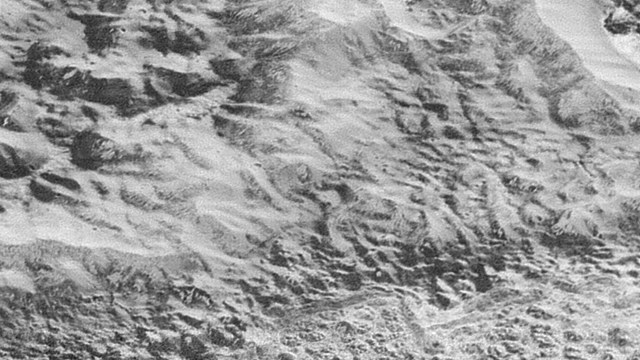Why I still believe in human goodness

After a tragedy occurs, we often look for a hero. We look for someone whose moral goodness gives us hope in humanity. Following the San Bernardino massacre, we found that hero in Shannon Johnson. Johnson saved the life of his coworker by sacrificing his own life. It seems that after almost every horrific event in recent memory, inevitably a story arises of someone whose ultimate act of altruism saved lives. In fact, after the movie theatre shooting in Aurora, Colorado, we learned of four different men who saved their girlfriends lives and died in the process. These stories go viral and dominate newsfeeds, newspaper headlines, and newscasts. There is something about finding the good that makes us feel good, that maybe not all is lost. There is science behind that feeling. It’s called “elevation,” and it occurs when we witness morally exceptional behavior in others.
Elevation shows itself in the warm, expansive feeling we get in our chests when something is literally “heartwarming.” That feeling is the vagus nerve being activated, part of the parasympathetic nervous system that is connected to heart rate and oxytocin release (the hormone responsible for social bonding and trust). Dacher Keltner, of the Berkeley Interactive Social Library, has said that “activation of the vagus nerve is associated with feelings of compassion and the ethical intuition that humans from different social groups (even adversarial ones) share a common humanity.” Seeing others act altruistically makes us feel connected to one another and reminds us of our shared humanity. We know that there is physical response to witnessing goodness, but what about the more emotional component? And does seeing people act in a virtuous way make us want to be better people?
A landmark study by Sara Algoe and Jonathan Haidt of the University of North Carolina and University of Virginia, respectively, brought scientific validation to these questions. Elevation as elicited by a “strong display of virtue,” they found, not only leads to the physical feelings from the vagus nerve, but also instigates emulation. We are likely to empathize and identify with the altruistic person in a story and want to do better or be better ourselves. The most interesting finding of their study was that when shown three different videos that displayed moral goodness, someone talented showing their skill, and a comedian telling a joke, more people wanted to emulate the act of goodness than wanted to dunk like Michael Jordan.
We socially praise these heroes because it makes us feel good about ourselves and about humanity. In the same way that seeing morally bankrupt acts gives us a feeling of disgust wherein we want to punish the perpetrator, morally good behavior gives us feelings of positivity, wherein we want to reward the do-gooder. According to Algoe and Haidt, we feel elevated when social praising, which is, it’s worth noting, different than joy. Joy tends to invoke actions that affect ourselves, while other-praising causes elevation, gratitude, and admiration and invokes actions that affect others. Simone Schnall (Cambridge) and Jean Roper (University of Plymouth) had similar findings with their study, which found that elevation “can provide the motivational trigger to act on affirmed moral values.”
It’s all very popular and chic to say humanity is over, we have no moral compass, we’re doomed. It’s hard to believe in goodness when there are so many heinous acts that are occurring with such alarming frequency. But if you look a little closer and look for the heroes, the Shannon Johnson’s of the world, you’ll remember who we really are and what the truth is about humanity. We lift each other up when we show our goodness. We make the world a better place when we shine. Maybe we can all do some random acts of kindness, of moral goodness, and see what happens. As George Harrison once sang, “With our love, we could change the world. If they only knew…”
PHOTO CREDIT: ARIS MESSINIS/AFP





